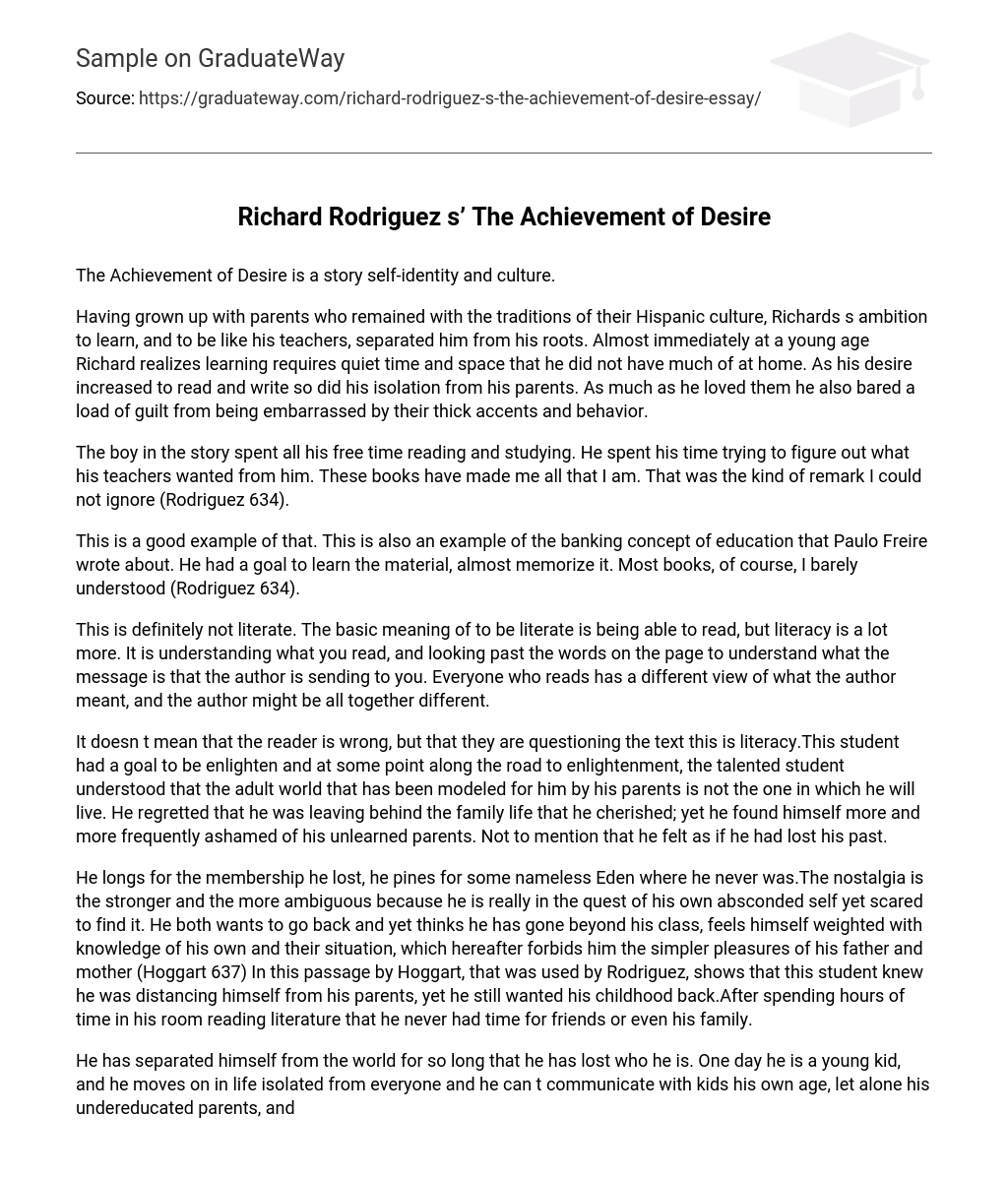“The Achievement of Desire” delves into the notions of self-identity and culture.
Despite growing up in a household that embraced their Hispanic heritage, Richard’s aspiration to acquire knowledge, emulating his educators, caused him to disconnect from his roots. At an early age, Richard quickly recognized that learning necessitated solitude and a physical environment that he lacked at home. The more his appetite for reading and writing grew, the more distanced he became from his parents. While Richard cherished his parents, he also carried a burden of guilt for feeling ashamed of their strong accents and actions.
The protagonist in the narrative devoted all of his leisure hours to reading and learning, as he strived to understand the expectations of his educators. The books he immersed himself in played a significant role in shaping his identity. The statement, “These books have made me all that I am,” left a lasting impact on me (Rodriguez 634).
This is a prime demonstration of this concept, which also aligns with Paulo Freire’s notion of the banking concept of education. Freire aimed to acquire knowledge, almost commit it to memory. Naturally, I struggled to comprehend most books (Rodriguez 634).
To be deemed literate, one must not solely possess the skill to read. Literacy encompasses a broader scope. It entails understanding what is being read and going beyond the superficial level to grasp the intended communication of the writer. Each reader comprehends the author’s intention in their own unique way, and the author may also have a distinctive viewpoint.
Questioning the text is a form of literacy that does not imply the reader is incorrect. A student seeking enlightenment may come to realize that their parents’ representation of the adult world does not align with their own beliefs. While they regret leaving behind their beloved family life, they also experience growing shame towards their uneducated parents and a sense of detachment from their past.
The text by Hoggart, as cited by Rodriguez, expresses the yearning and nostalgia of a student who desires to regain a sense of belonging that he once had but lost. He longs for an unnamed paradise that he never personally experienced. However, the complexity arises from his search for his own hidden identity while also fearing its discovery. Simultaneously, he wishes to go back to his past but believes that he has surpassed his social class. The burden of self-knowledge and understanding about his situation prevents him from embracing the simpler pleasures cherished by his parents. Through this passage, Rodriguez demonstrates comprehension that he was distancing himself from his parents while still yearning for the innocence and simplicity of his childhood. This is evident in his choice to spend extensive hours absorbed in solitary reading instead of spending time with friends and family.
As a result of his prolonged isolation, he has lost his sense of identity. Initially as a young child, he gradually grew disconnected from others. He struggled to communicate with peers and even had difficulty connecting with uneducated parents. Now he realizes that he missed out on many life experiences. Worried about not enjoying his teenage years due to being more intellectually advanced than his peers, he approached learning by simply meeting teachers’ expectations rather than seeking personal growth. Instead of immersing himself in life’s lessons for the purpose of learning, he focused solely on reading without true understanding, resulting in acquiring basic reading skills similar to others his age.





